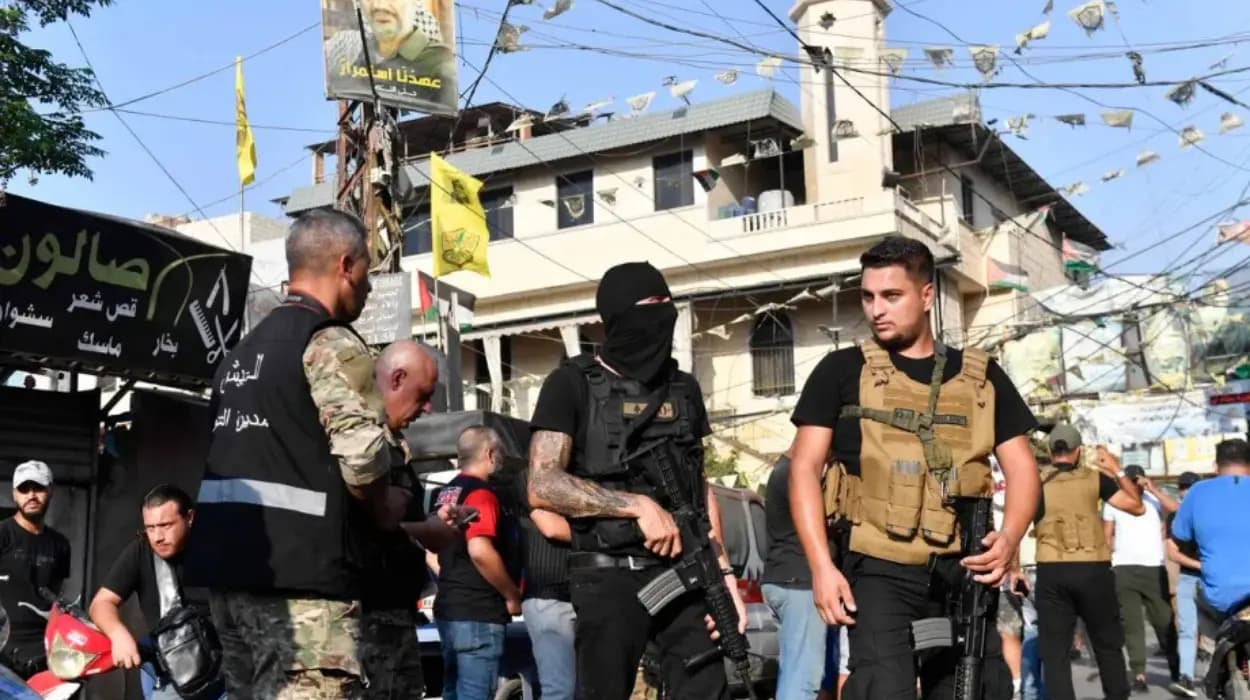Lebanon has launched a government-led operation to collect
arms from Palestinian refugee camps, aiming to restore state control and reduce
tensions in these volatile areas. The initiative involves coordination with
Palestinian factions and Lebanese security forces amid mixed reactions
reflecting the complex political and security realities.
Lebanon’s Security Operation in Palestinian Camps
As reported by Middle East Monitor on 22 August 2025,
Lebanon has begun the collection of weapons from Palestinian refugee camps
across the country. This move marks a governmental attempt to impose state
authority in areas long governed by armed Palestinian factions, some of which
have maintained weapons independently of Lebanese control for decades.
The Lebanese army, under the coordination of the Ministry of
Defence, is spearheading the operation. The government emphasises the necessity
of reducing the proliferation of arms within the camps to bolster national
security and prevent the potential for intra-state or regional conflicts to be
inflamed.
Background and Context
As noted by journalist Kareem Chehayeb of Al-Araby
Al-Jadeed, Lebanon has faced enduring challenges balancing the presence of
Palestinian refugees and armed groups within its borders. The camps, originally
established to shelter Palestinians displaced since 1948, have become semi-autonomous,
housing factions that at times operate with their own security protocols and
arsenals. This reality has complicated Lebanese sovereignty and security
policymaking over the years.
The camps had previously been sites of armed clashes and
were implicated in regional dynamics, where tensions between Palestinian
factions, Lebanese political forces, and external actors often intersect. The
move to collect arms signals a renewed government commitment to reinforcing the
rule of law and curtailing weapons outside state oversight.
Details of the Arms Collection Operation
According to the Reuters report by Tom Perry on 22 August
2025, the Lebanese army commenced raids and checkpoints in and around the
refugee camps with the goal of collecting unauthorized weapons. Military and
security sources confirm a phased and cautious approach to avoid unnecessary
escalation.
The operation reportedly involves engagement with
Palestinian faction leaders who have been urged to cooperate voluntarily.
However, the government is prepared to enforce disarmament strictly if
cooperation is not forthcoming.
Coordination with Palestinian Leadership
Lebanese authorities are engaging in negotiations with
Palestinian representatives to ensure the process is orderly. It is highlighted
that maintaining calm and preventing clashes is a priority. The collection of
arms is positioned not as an antagonistic act but as a necessary step for
stabilisation.
As per local Lebanese officials, this initiative also aims
to curtail the influence of extremist factions that could exploit armed
presence in the camps to destabilise Lebanon or the wider region.
Reaction and Implications
The operation has received a mixture of support and
criticism both domestically and from Palestinian communities. Supporters argue
that disarming illegal weapons strengthens national unity and security, while
critics caution against potential humanitarian impacts and perceive the move as
political pressure on Palestinian refugees.
Lebanese political analyst Rana El-Khatib, quoted in
Al-Araby Al-Jadeed, comments that the success of the operation depends heavily
on political will, sensitivity to Palestinian rights, and the ability of
Lebanese institutions to provide security without exacerbating tensions.
The broader regional context also plays a role, as Lebanon
navigates complex alliances and hostilities within the Middle East. Palestinian
factions operating from Lebanon have historically been linked to the
Israeli-Palestinian conflict, and arms control within camps is viewed as a
significant factor in Lebanon’s internal stability and its external diplomatic
relations.
Lebanon’s initiation of arms collection in Palestinian
refugee camps marks a significant point in its security policy and state
assertion over semi-autonomous zones. The government and military are engaged
in a delicate operation to recover control while managing the sensitivities inherent
to the refugee population and armed factions.
As this operation unfolds, its outcomes are closely watched
by Lebanese citizens, Palestinian communities, regional actors, and
international observers. The endeavor highlights the ongoing challenges Lebanon
faces in balancing state sovereignty, refugee rights, and regional tensions.
